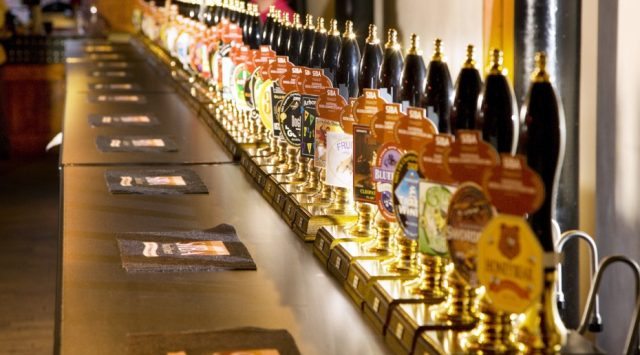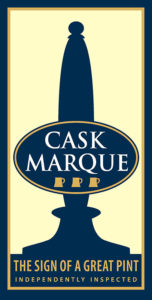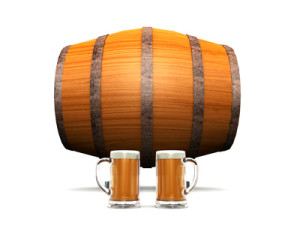
Although barely on the radar in the US, cask ales have long been a big deal in the United Kingdom. In fact many in the UK consider cask THE artisan staple and craft beer a sorry upstart. But now it appears that pub closures and craft beer are undermining cask’s legacy.
Here’s the deal…
According to a recent report by Cask Marque, the cask market is in serious trouble in the United Kingdom with overall volumes down by 6.8% since 2017. And although the non-profit’s report added that given the rate of pub closures the decline was not “wholly unexpected,” it was “worse than it should be.”
What is Cask Conditioned Ale?
 A lot could be written about cask conditioned ales, but we’ll stick to highlights.
A lot could be written about cask conditioned ales, but we’ll stick to highlights.
A cask is basically a keg. It’s shaped differently and has different mechanics when it comes to serving, but it’s essentially a large container that holds beer.
What’s primarily different about cask ale is that the beer itself is unfiltered (which means the active, living yeast are still present) and it doesn’t receive extra carbonation.
Some in the UK get pretty specific about what can be called ‘cask conditioned beer’ or ‘real ale.’ The Campaign for Real Ale (CAMRA) puts forth this definition…
“Real ale is a beer brewed from traditional ingredients (malted barley, hops, water, and yeast), matured by secondary fermentation in the container from which it is dispensed, and served without the use of extraneous carbon dioxide.”
In any case, this usually means that an authentic cask conditioned beer is less carbonated than it would be if it were put into a bottle or keg along with additional CO2.
In addition, traditional cask beers are served using oxygen (or an oxygen/gravity tag team) to push them out of the cask and into your glass. This means you get a different texture from the lower CO2 level. Once the cask is tapped, it should be consumed quickly (ideally in one day)… otherwise the oxygen will cause it to spoil.
Why Is Cask Beer Declining Now?
 Cask Marque was not wrong to cite England’s escalating pub closures for its role in the UK’s cask ales sales declines. After all, cask beer still makes up 55% of the overall on-trade category, according to figures from the CGA and still plays big part of British pub culture.
Cask Marque was not wrong to cite England’s escalating pub closures for its role in the UK’s cask ales sales declines. After all, cask beer still makes up 55% of the overall on-trade category, according to figures from the CGA and still plays big part of British pub culture.
But with UK bars (which are increasing championing craft beer, cider and spirts) on the rise in urban centers like London, and pubs closing at a rate of almost seventeen a week…there’s an undeniable transition taking place the UK with cask ales losing ground to the craft beer and premium lager sectors.
 American Craft Beer The Best Craft Beer, Breweries, Bars, Brewpubs, Beer Stores, And Restaurants Serving Serious Beer.
American Craft Beer The Best Craft Beer, Breweries, Bars, Brewpubs, Beer Stores, And Restaurants Serving Serious Beer.
